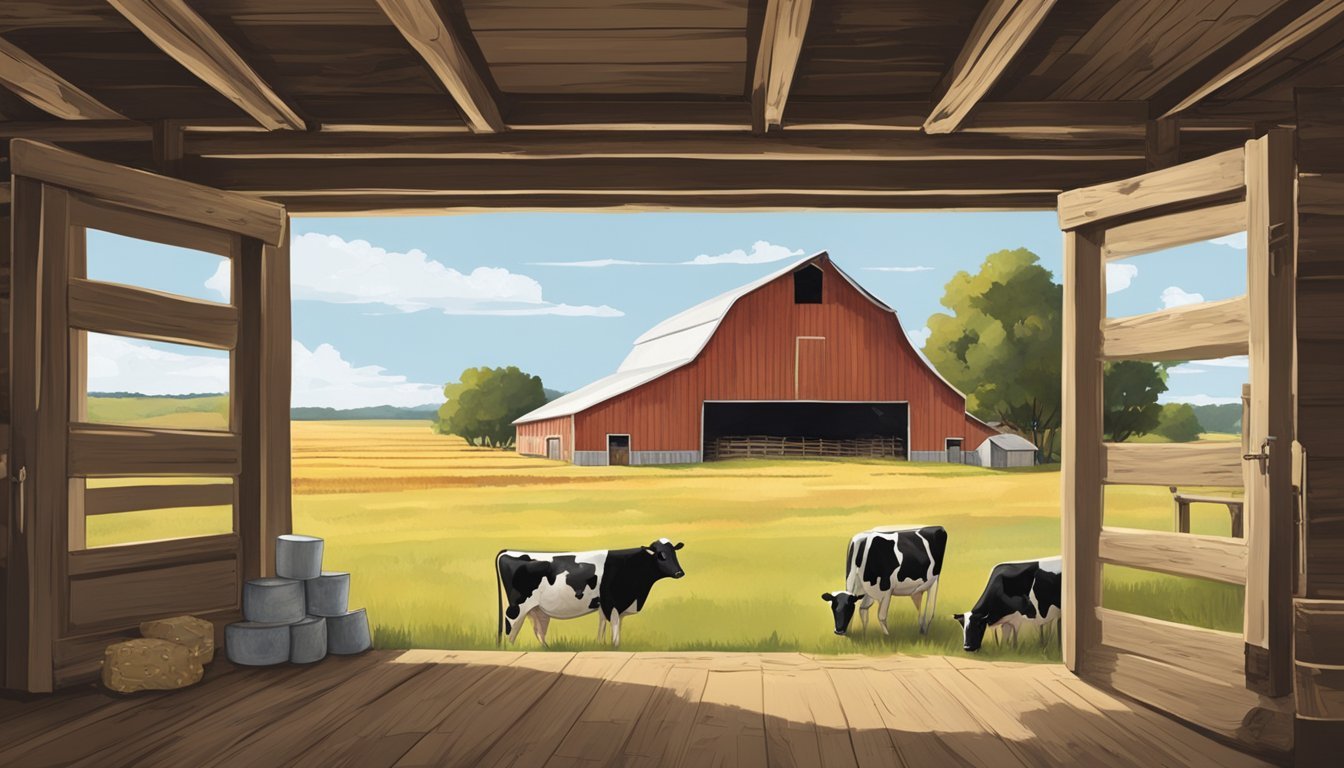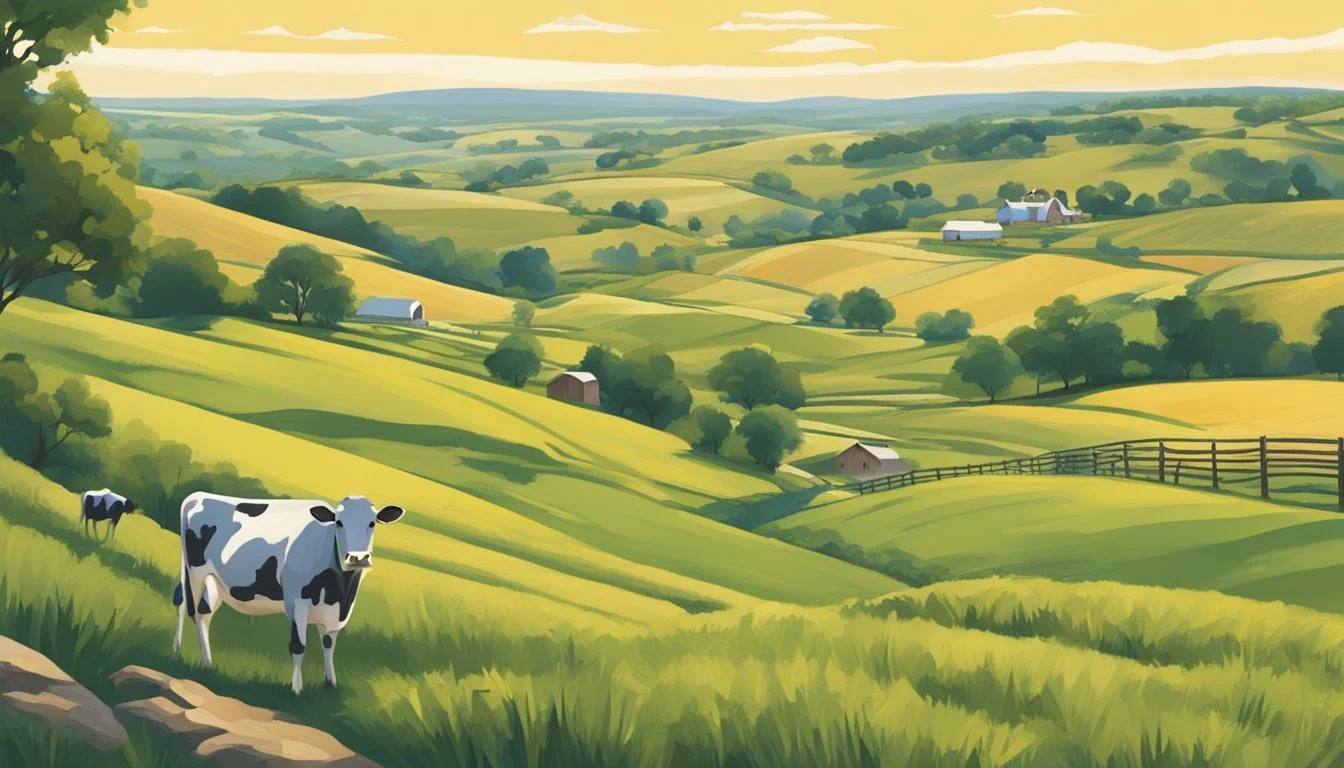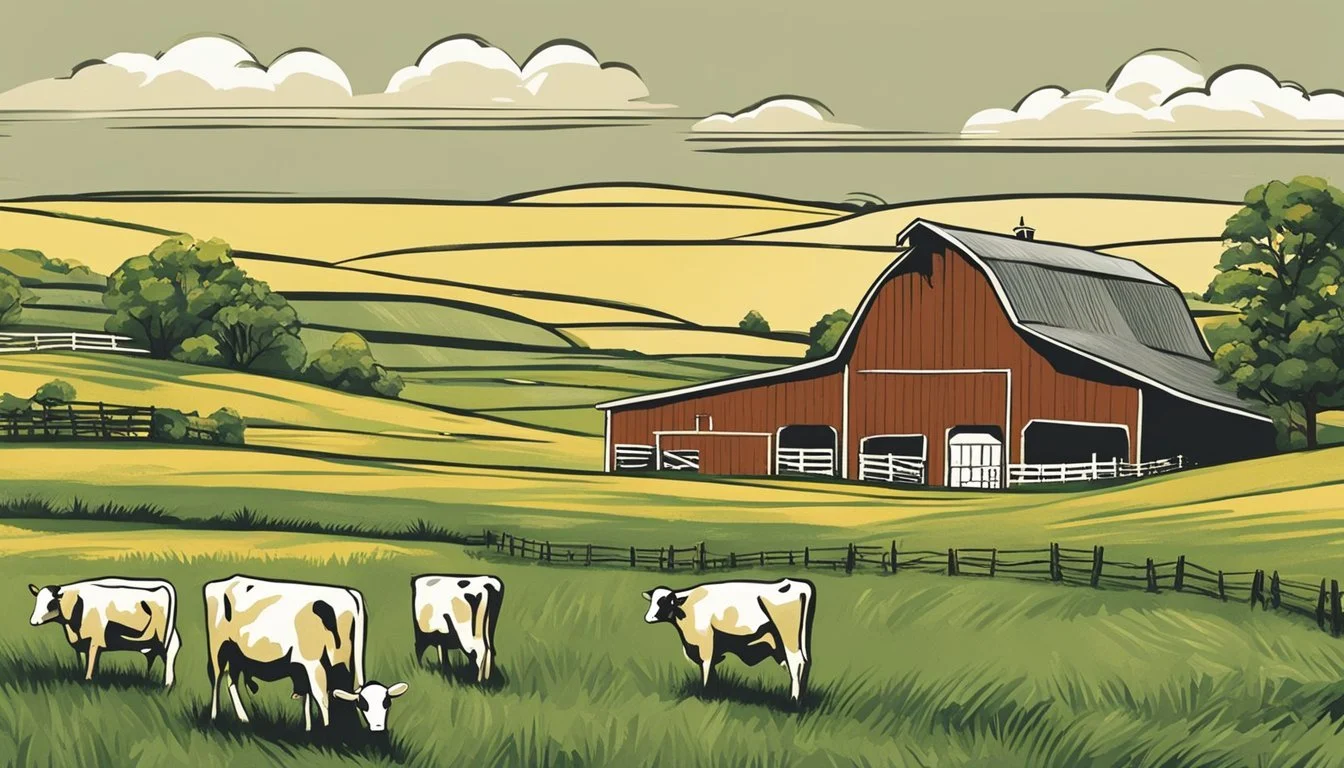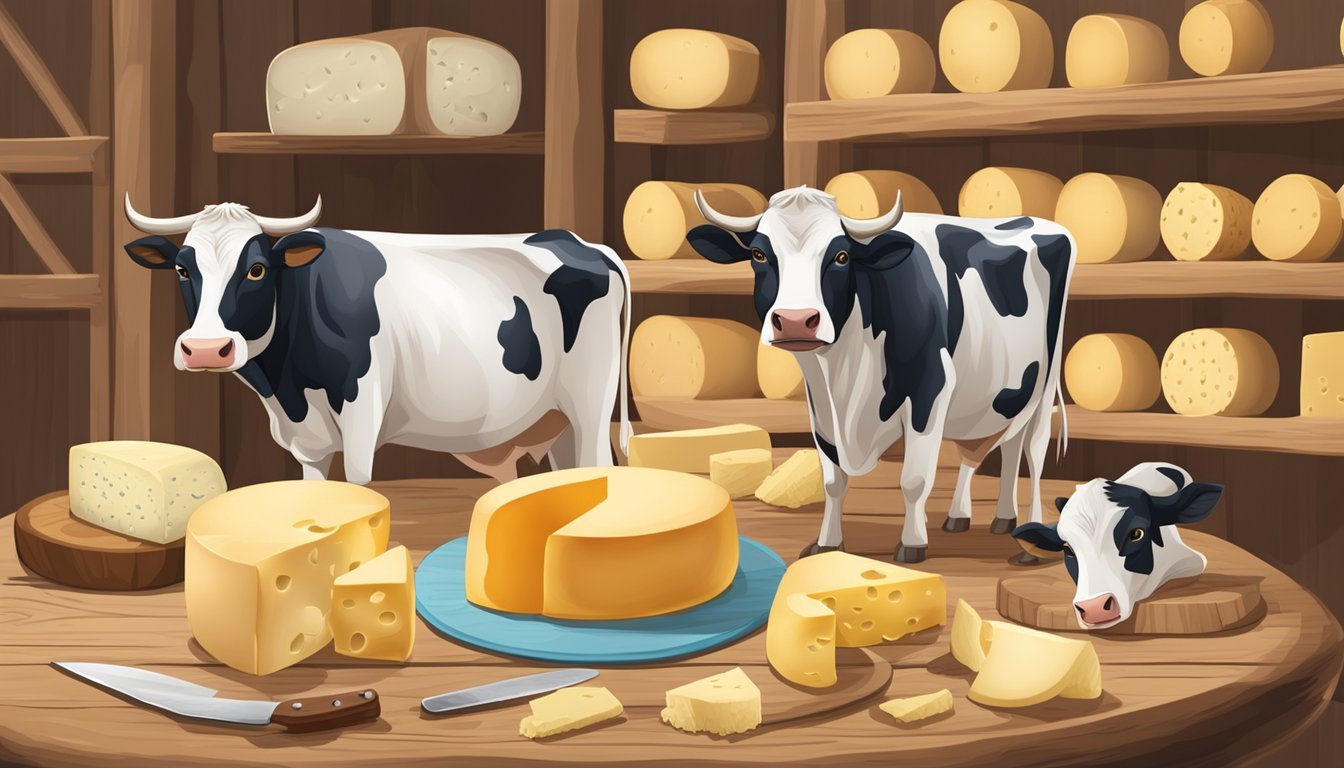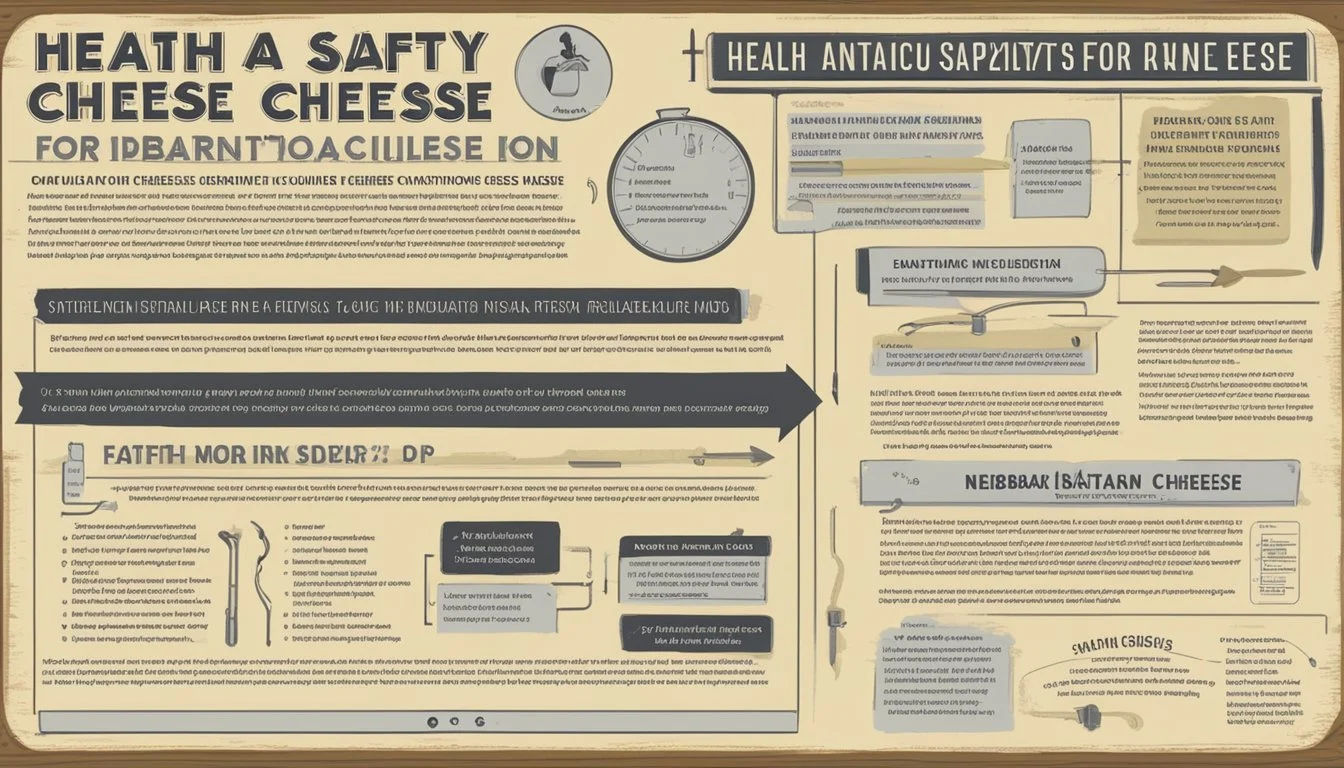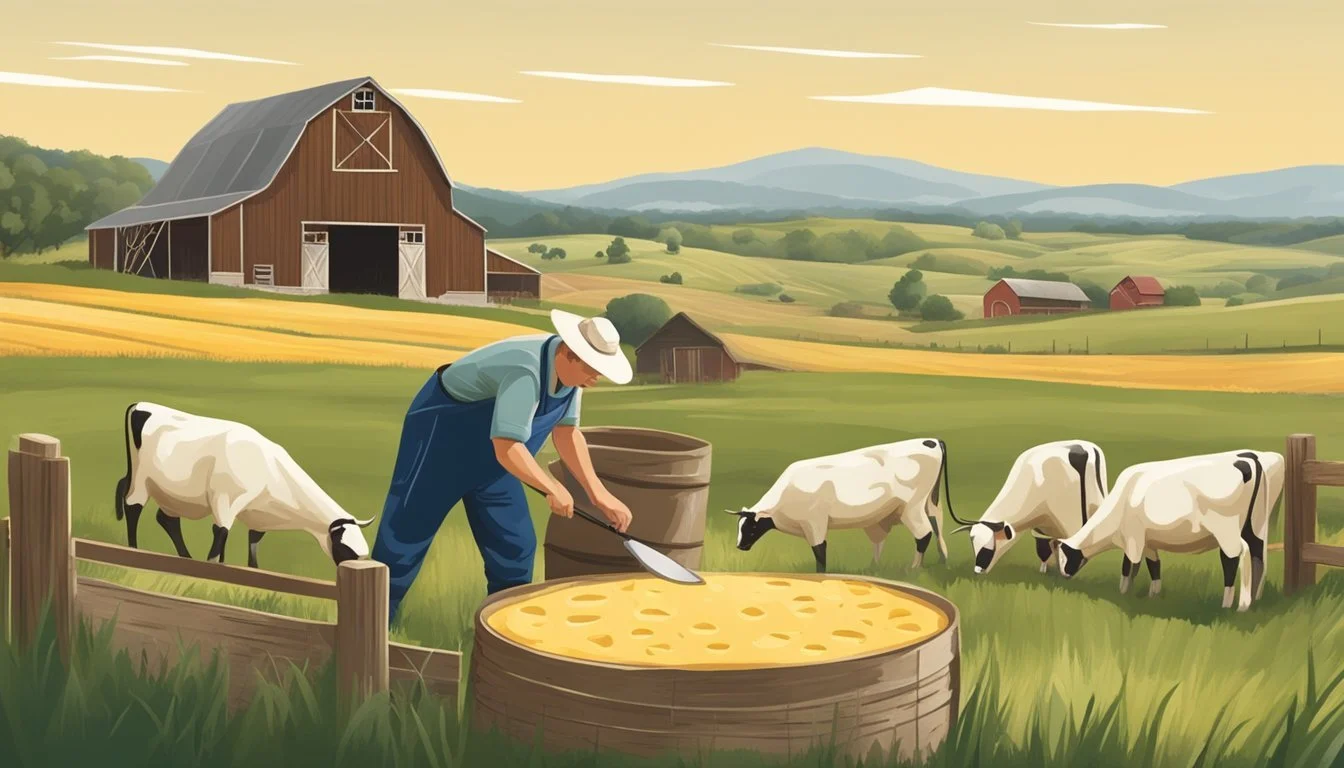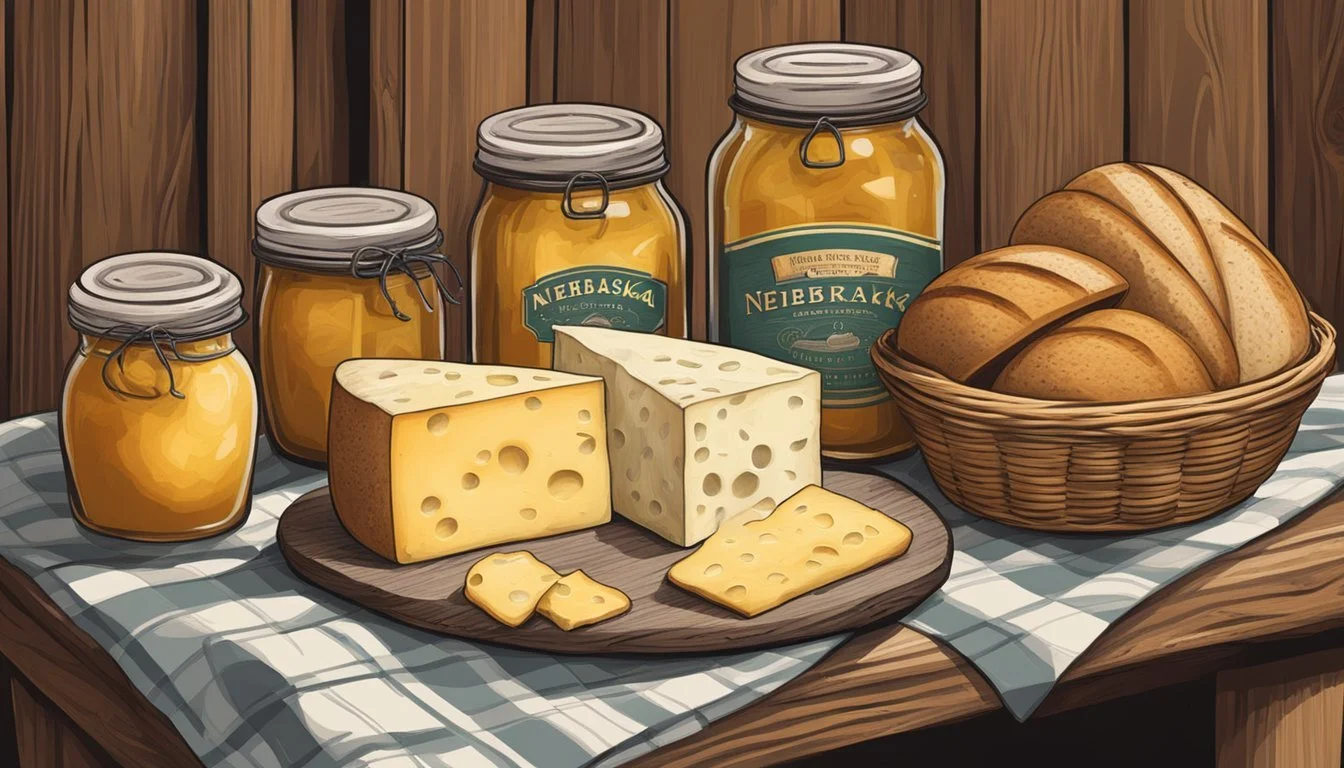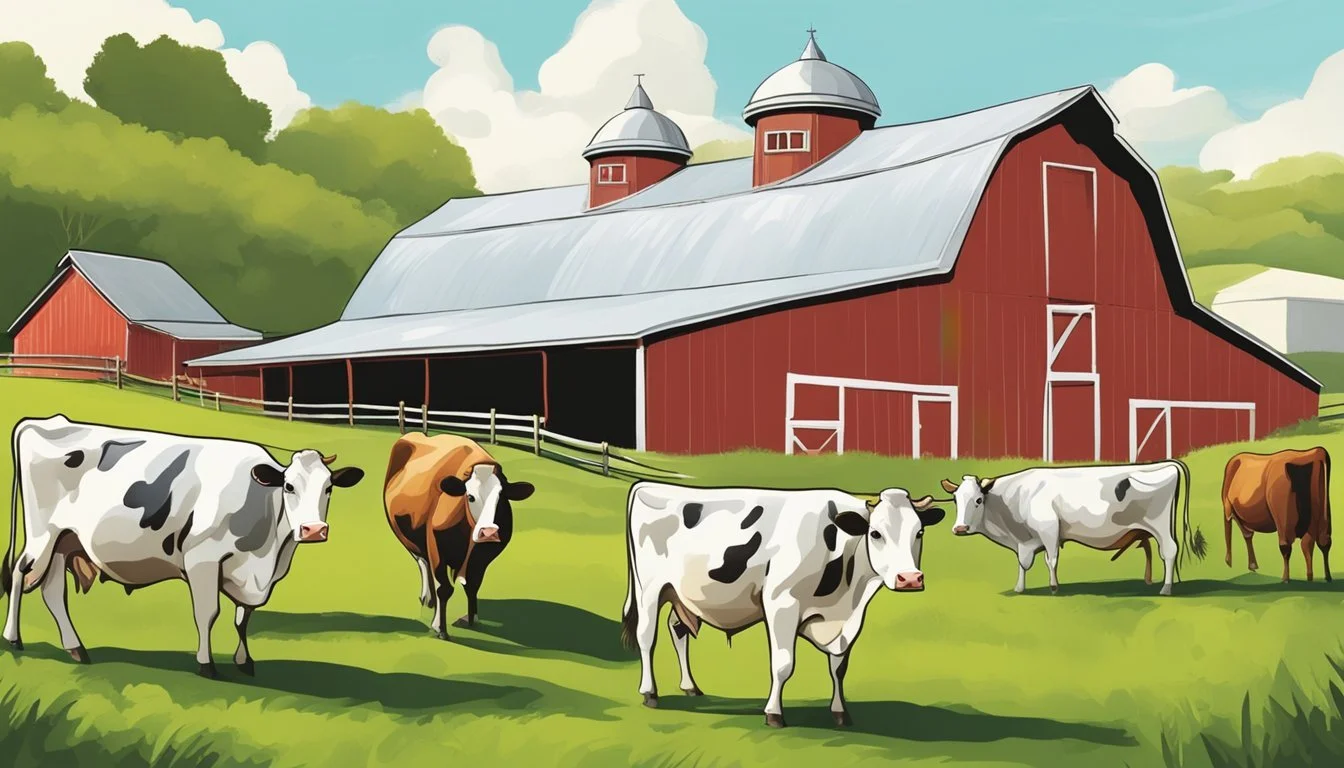Nebraska Artisan Cheese
A Taste of Local Craftsmanship
Nebraska's artisan cheese (how long does cheese last?) scene is an expanding market that reflects a rich tradition of dairy farming and a growing appreciation for handcrafted food products. With a history rooted in the state's agricultural heritage, cheese makers in Nebraska produce an array of cheeses by using fresh, locally sourced milk. These cheeses are often created through traditional methods, mirroring the meticulous craft found in European cheese making but with a distinct Nebraskan twist. From creamy goat cheeses to bold cheddars, the variety available offers a unique sensory experience that captures the essence of the region's terroir.
Artisan cheese production in Nebraska, while not as extensive as in some other states, is distinguished by a close-knit community of producers who take pride in their small-batch, high-quality products. Farms like Jisa's Farmstead Cheese and Victory Hill Farm, both highlight the personalized nature of local cheese making. These family-owned enterprises not only contribute to the state's gastronomic reputation but also support the local economy through farm-to-table initiatives. The presence of ShadowBrook Farm with its garden-fresh produce and pasture-raised pork alongside their cheese products showcases how these artisan producers often diversify to sustainably manage their land and resources.
The emergence of establishments such as Northwoods Cheese Haus indicates an increasing consumer interest in specialized cheese offerings within Nebraska. As Nebraskans become more familiar with the art of cheese making, they seek out destinations that offer a selective range of artisanal cheeses. This reflects a broader trend towards food provenance, where understanding and appreciating the origin and craft behind food is becoming an essential part of the culinary experience. As the state's artisan cheese industry grows, it promises to deliver flavors that are as authentic as they are innovative, solidifying Nebraska's place on the cheese-making map.
The Artisan Cheese Movement in Nebraska
In the heartland of the Midwest, Nebraska is carving out a niche in the artisan cheese industry. This movement champions traditional, carefully crafted cheese-making methods, with several dedicated producers contributing to the state's culinary landscape.
Artisan cheese in Nebraska is produced in small batches and emphasizes quality and flavor. Family-run operations like Victory Hill Farm exemplify the dedication to fostering a farmstead cheese culture, which is characteristic of Nebraska’s approach. Here, goats are raised, and handcrafted cheeses are produced, reflecting a commitment to self-sufficiency and local sales.
The Nebraska Cheese Guild is indicative of the community's spirit, with a mission to support and promote local cheesemakers. The guild underscores the solidarity among Nebraska's artisans, striving to elevate both the art and the image of their cheese.
Year Notable Event 1946 Jisa's Farmstead Cheese originated, later starting cheese production in 2005. 1970s The American artisan cheese movement's foundations influenced Nebraska's cheesemakers.
Artisan cheese in Nebraska also reflects the Midwest’s value of authenticity in food production. The region's producers are notably transparent about their craft, inviting consumers into the story of each cheese, from pasture to plate.
In Nebraska, the artisan cheese movement is less about following trends and more about a reverent return to roots. The state's cheesemakers are not only preserving and innovating within their craft but also ensuring that their products stand as a testament to Nebraska's rich agricultural heritage.
History and Development
In Nebraska, the artisan cheese industry reflects a rich narrative marked by individual endeavor and educational support. The journey from the early inception to present successes includes pivotal roles by local dairy farms and the University of Nebraska.
Jisa's Legacy
Jisa Dairy Farm, located in Brainard, NE, has contributed significantly to Nebraska's artisan cheese history. The Jisa family, with deep roots in the dairy industry, has been producing cheese since the establishment of their farm. Built on tradition, Jisa Dairy Farm upholds the values of quality and craftsmanship in cheesemaking -- hallmarks of the state's artisanal dairy produce.
University of Nebraska's Influence
The University of Nebraska has played an important role in the development of the state's cheese industry through education and resources. Offering classes in cheesemaking, the university has provided not only knowledge but also a space for experimentation for future cheesemakers. This guidance has proven invaluable for artisans looking to refine their craft and build successful businesses.
Key Artisan Cheese Farms
Nebraska's artisan cheese scene is driven by a commitment to quality and craftsmanship. The state is home to a handful of farms dedicated to producing premium and distinct farmstead and artisan cheeses.
Shadowbrook Farm
Shadowbrook Farm, paired with the Dutch Girl Creamery, is celebrated for its organic approach to cheese-making. Charuth van Beuzekom operates the farm, which proudly maintains a herd of 200 milking goats. With these goats, they produce a diverse array of both raw and pasteurized goat milk cheeses, amounting to over 20,000 pounds annually. Their cheeses are a testament to the care and attention to detail that goes into every batch.
Branched Oak Farm
Another notable name in the industry is Branched Oak Farm. Situated near Raymond, Nebraska, this farm is known for delivering a range of high-quality cheeses to the market. They transform the milk straight from their dairy into luscious artisan cheeses, ensuring a true farm-to-table experience. Their hands-on process from milking to cheese-making reflects their dedication to the artisan craft.
Dutch Girl Creamery
Dutch Girl Creamery, part of Shadowbrook Farm's operation, stands out for its specialized focus on goat cheeses. Each cheese is organically produced, highlighting the creamery's commitment to natural processes and sustainability. Their selection enhances Nebraska's culinary landscape by offering a variety of unique flavors that cater to cheese connoisseurs and casual enthusiasts alike.
Each creamery and farm listed contributes significantly to the state's reputation as a rising star in the artisan cheese industry, with each establishment's dedicated cheese makers ensuring the highest quality in their farmstead offerings.
Cheese Varieties and Production
Nebraska's artisan cheese scene is rich with a variety of farmstead cheeses created using locally sourced milk. Strict attention is paid to maintaining a clean process from the herd to the final product.
Popular Cheese Varieties
Nebraska's cheese makers produce a selection of whole milk cheeses that cater to a wide range of tastes. Notably, cheese enthusiasts can find:
Gouda: A semi-hard cheese celebrated for its rich, unique flavor and smooth texture.
Mozzarella: Known for its delicate taste and perfect melt, ideal for culinary use.
Feta: A crumbly, tangy cheese often featured in salads and Mediterranean dishes.
Cheddar: A widely favored cheese that varies from mild to sharp, aging contributes to its depth of flavor.
Camembert: A soft, creamy cheese with a distinctive earthy note.
Each cheese variety follows a specific recipe for cheese, ensuring authenticity and consistent quality.
Cheesemaking Process
The journey to create artisan cheese in Nebraska starts on the farm. Here's a distilled view of the process:
Milk Collection: Fresh, pasteurized whole milk from the herd forms the base of all cheese.
Pasteurization: Milk is heated to eliminate pathogens, ensuring safety and a clean taste.
Coagulation: The milk is then coagulated using rennet, causing it to separate into curds and whey.
Curds Processing: Curds are cut, stirred, and sometimes heated to develop the desired cheese texture.
Shaping and Pressing: Curds are placed into molds to form the shape of the cheese.
Aging: Some cheeses, like cheddar and gouda, are aged to develop their character.
The specifics of the process, from the composition of the herd's diet to the time and temperature of aging, influence each cheese’s final flavor profile and texture.
Business Aspects of Artisan Cheese
The artisan cheese industry in Nebraska, characterized by small dairies like Victory Hill Farm, has unique business elements, from marketing strategies to dairy business growth. Emphasis is placed on utilizing local markets and direct sales to build sustainable businesses.
Marketing and Sales Channels
Artisan cheese producers, such as Sarah and her husband Lee from Victory Hill Farm, often adopt a direct-to-consumer sales approach. They leverage their website to reach a broader audience, providing customers with information about the farm and the types of cheeses available. Local farmers markets are a critical sales channel, where producers can interact directly with consumers, offering tastings and fostering relationships.
Business to Business (B2B) Channels:
Restaurants: Supplying local restaurants that wish to feature locally-sourced, artisanal products.
Grocery Stores: Placement in specialty sections of grocery stores to reach a wider market.
These channels aid in diversifying the dairy farm's business model, increasing resilience to fluctuating milk prices and allowing for a more consistent revenue stream.
Growing a Dairy Business
To grow a dairy business, the process involves scaling up production and managing production costs effectively. For small dairies, maintaining herd health and milk quality is paramount. Diversifying cheese types, based on the search result indicating a nationwide decline in farmstead cheese production, could be a strategic move to appeal to a broader consumer base, without over-reliance on one type of product.
Key Considerations Include:
Milk Prices: They can significantly impact profitability, so efficient production and cost management are crucial.
Small Dairies: Need to focus on creating a unique selling proposition to differentiate themselves in the market.
Through strategic marketing and sales channels, coupled with careful business growth planning, Nebraska's artisan cheese producers are poised to maintain their niche in an increasingly competitive market.
Health and Safety Regulations
When producing artisan cheese in Nebraska, cheese makers must adhere to strict health and safety regulations to ensure high-quality, safe products. State regulations and the creation of sanitized environments are essential aspects of compliance.
State Regulations
In Nebraska, the production of artisan cheese is governed by the Nebraska Pure Food Act, which includes sections from the United States Public Health Service's 2017 Food Code as adopted by the state. These regulations are explicit in the Nebraska Revised Statutes under section 81-2,239. Specific sections 81-2,272.01 to 81-2,292 are dedicated to food establishment regulations. Cheese artisans should also be cognizant of not using rBST, a synthetic hormone, as consumers and state regulations increasingly demand rBST-free dairy products.
Creating Sanitized Environments
Maintaining a clean and sanitized environment is a cornerstone of food safety. Nebraska regulations specify that all food contact surfaces, including utensils and dishes used in cheese production, must be properly sanitized. This can be achieved through:
Chemicals: Approved sanitizers such as chlorine, iodine, and quaternary ammonium compounds must be used according to label instructions.
Heat: Immersion in hot water at a minimum temperature of 171°F for at least 30 seconds is another effective method for sanitization.
Establishing and maintaining a sanitized environment not only ensures compliance with state regulations but also underpins the trust consumers place in Nebraska's artisan cheese products.
Educational and Experience Opportunities
In Nebraska, aspiring artisan cheesemakers can enhance their craft through a variety of educational experiences and interactive opportunities, ranging from formal classes to hands-on farm tours.
Cheesemaking Classes
The University of Nebraska does not specifically offer cheesemaking courses directly, but individuals in Nebraska have opportunities to learn artisan cheesemaking through various workshops and classes in the region. These educational experiences often cover both the science and craft required to produce high-quality cheeses. While not local, institutions similar to the Michigan State University Extension provide specialized artisan cheese workshops that could serve as an example for the types of programs to look for in Nebraska.
Possible Learning Experiences Include:
Local workshops: Look out for small-scale classes hosted by experienced cheesemakers.
Extension programs: Similar to those at Michigan State, they might occur from time to time.
Farm Visits and Tours
Small-scale cheese producers in Nebraska, like those at Victory Hill Farm, play a pivotal role in agritourism and education. They offer farm tours which can be an invaluable experience for those wanting to learn the trade hands-on. Traveling to farms, despite the distances involved, can provide an immersive learning experience into the day-to-day operations of cheese production from milking to marketing.
Touring Opportunities Might Include:
Victory Hill Farm: A hands-on approach to learning about farmstead cheesemaking.
Local Farmers' Markets: An opportunity to interact with cheesemakers and understand the end-to-end process.
Products Beyond Cheese
While cheese remains a signature product of Nebraska's artisan dairy scene, producers also offer a variety of other dairy and related products. They provide high-quality options for consumers seeking locally sourced, fresh, and handcrafted items.
Yogurt: This creamy dairy product is made by fermenting milk with live bacteria cultures. Artisanal producers in Nebraska create small batches with a focus on texture and flavor, often using milk from their own herds.
Quark: Lesser-known than yogurt, quark is a type of fresh dairy product that has a smooth, spreadable texture. Nebraska artisan producers craft this versatile item, which can be used in baking, as a spread, or in dips.
Raw Milk: Available from select farms, raw milk is milk that has not been pasteurized or homogenized. It is appreciated by some consumers for its perceived natural qualities and rich flavor. However, it's essential to purchase from reputable sources that handle raw milk with utmost care to ensure food safety.
Cheese Curd: These are the fresh curds of cheese, often cheddar, enjoyed for their mild flavor and slightly rubbery texture. In Nebraska, they are sometimes sold directly after production, showcasing a signature "squeak" when fresh.
Honey: Local Nebraskan honey is often available at artisan cheese shops or farms. Honey not only complements cheese with its natural sweetness but also represents the local flora, as bees collect nectar from the surrounding fields and flowers.
Product Description Yogurt Fermented dairy, creamy, locally produced. Quark Spreadable fresh dairy, versatile in use. Raw Milk Non-pasteurized milk, sold with care for natural flavor. Cheese Curd Fresh curds with mild flavor, "squeak" when eaten. Honey Natural sweetener, pairs well with cheese, reflects local plants.
Each product offers a connection to Nebraska's agricultural richness, tapping into the state's tradition of freshness and quality.
Animal Welfare and Dairy Practices
In Nebraska, artisan cheese production is closely tied to dairy farm practices that prioritize animal welfare, focusing on herd management and milk quality standards to produce cheese responsibly and ethically.
Herd Management
Jersey cows and Holstein cows make up the majority of the dairy herds in Nebraska's artisan cheese production. These breeds are often chosen for their rich grade A whole milk, which is a key ingredient in cheese making. Farms commit to exceptional herd management practices that include:
Providing spacious pastures for grazing.
Ensuring a clean living environment to promote health.
Implementing stress minimization techniques during milking and handling.
Dairy operations such as Branched Oak Farm are an example where Jersey cows are raised on organic pastures. The focus is on organic practices which means the cows are not only given access to pasture but also fed organic feed.
Milk Quality Standards
Milk quality is paramount for producing premium artisan cheeses. Farms adhere to strict milk quality standards that involve:
Regular testing for bacterial counts and somatic cells, ensuring clean, wholesome milk.
Following proper milking procedures to maintain the integrity of grade A whole milk.
Keeping meticulous records to trace each batch from farm to final cheese product.
Some dairy farms also diversify into products like goat milk to cater to specific cheese varieties. Specialized practices ensure that whether from cow or goat, the milk meets the high standards required for quality cheese production.
Community Impact and Sustainability
In Nebraska, artisan cheese plays a significant role in supporting local economies and promoting sustainability. This symbiosis benefits both the community and the environment.
Supporting Local
Artisan cheese producers in Nebraska have a profound economic impact on local communities. By sourcing ingredients from local farmers and utilizing local labor, they contribute significantly to the regional economy. At farmers markets, particularly in urban centers like Omaha, Nebraska's artisan cheeses command both foodie adoration and a reputation for quality. These markets provide a platform for cheese artisans to sell directly to consumers, fostering a closer connection between producer and consumer. This direct-sales approach often translates into financial support for the producers, enabling them to continue their craft and invest in their communities.
Local Economic Boost:
Direct sales at farmers' markets in Omaha.
Investment back into the community.
Sustainability Initiatives
Nebraska's artisan cheese producers are often at the forefront of sustainability initiatives. Grants and support programs are available to assist producers in implementing sustainable practices that benefit the environment. These practices include managing waste responsibly, using renewable energy sources, and maintaining biodiversity on farms. By focusing on sustainable methods, these cheese artisans not only produce a better product but also steward the land that supports their livelihood.
Environmentally Friendly Practices:
Responsible waste management.
Renewable energy usage on farms.
Maintenance of farmland biodiversity.
Through these dedicated efforts in supporting local economies and adopting sustainability initiatives, Nebraska's artisan cheese sector demonstrates a commitment to the well-being of the community and the health of the planet.

